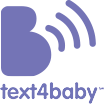Resources for New Moms
- Baby’s Development
- Tips & Resources
- Feeding Baby
- Health & Safety
- Well-Child Visits & Vaccines
- Well-Child Visit Guides
- Vaccines
- Finding Free Vaccines
- Making Shots Less Stressful
- Protect Baby from Pertussis (Whooping Cough)
- Vaccine Information for Babies
- Vaccines: DTaP
- Vaccines: MMRV
- Vaccines: Hepatitis A
- Vaccines: Hepatitis B
- Vaccines: Hib
- Vaccines: Rotavirus
- Vaccines: PCV
- Vaccines: Polio (IPV)
- Vaccines: Seasonal Flu
- Vaccines: Varicella
- Parenting
Formula Feeding
If you are feeding your baby infant formula, there are some important things to know, such as how to choose an infant formula, and how to prepare and store it.
The US Food and Drug Administration (FDA) regulates commercial infant formulas to make sure they meet minimum nutritional and safety requirements. Commercial infant formulas come in liquid and powdered forms. Talk with your baby’s provider if you have questions about choosing an infant formula for your baby or if you are thinking of switching infant formula brand or type.
Preparation
- Wash your hands well before preparing bottles or feeding your baby. Clean and sanitize the workspace where you will be preparing the infant formula.
- Bottles need to be clean and sanitized.
- Baby’s milk or infant formula does not need to be warmed before feeding, but some people like to warm their baby’s bottle. If you do decide to warm the bottle, never use a microwave. Microwaves heat milk and food unevenly, resulting in “hot spots” that can burn your baby’s mouth and throat.
- To warm a bottle, place the bottle under warm running water, taking care to keep the water from getting into the bottle or on the nipple. Put a couple drops of infant formula on the back of your hand to make sure it’s not too hot.
- If you use powdered infant formula:
- Use water from a safe source to mix your infant formula. If you are not sure if your tap water is safe to use for preparing infant formula, use a water filter or bottled water and contact your local health or water department to test the water from your tap.
- Use the amount of water listed on the instructions of the infant formula container. Always measure the water first and then add the powder.
- Too much water may not meet the nutritional needs of your baby.
- Too little water may cause your baby’s kidneys and digestive system to work too hard and may cause your baby to become dehydrated.
Use quickly or store safely
When you first open the container, write the date on the lid to help you remember. Make sure the container is sealed and in good condition. If there are any leaks, puffy ends, or rust spots, do not feed it to your infant.
- Never use formula after the “Use By” date on the container.
- Prepared infant formula can spoil if it is left out at room temperature.
- Use prepared infant formula within two hours of preparation and within one hour from when feeding begins.
- If you do not start feeding your baby the prepared infant formula within two hours, immediately store the bottle in the fridge and use it within 24 hours.
- Throw out any infant formula that is left in the bottle after feeding your baby. The combination of infant formula and your baby’s saliva can cause bacteria to grow.
- Most infant formulas need to be used within one month of opening the container (check the label).

